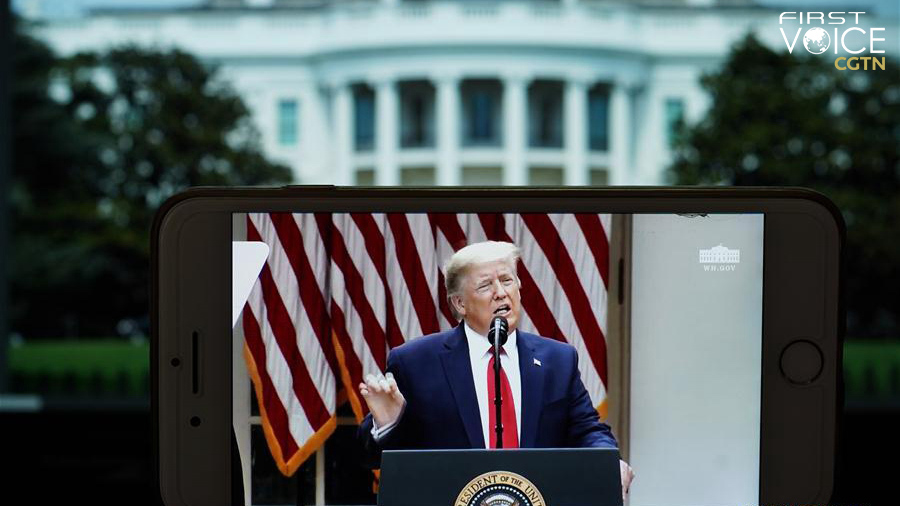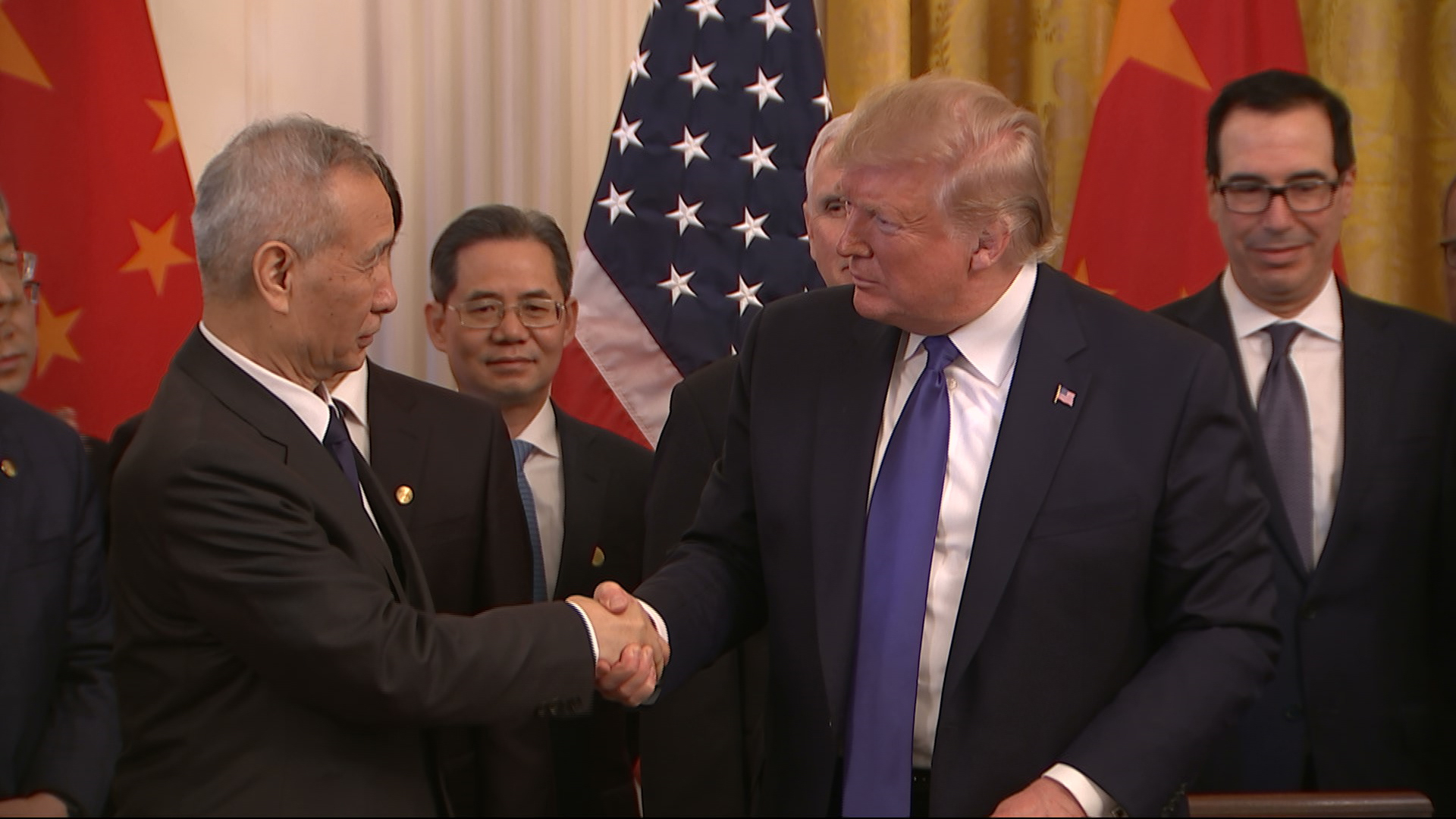
Editor's note: CGTN's First Voice provides instant commentary on breaking stories. The daily column clarifies emerging issues and better defines the news agenda, offering a Chinese perspective on the latest global events.
The China-U.S. phase one trade deal has been put on the chopping block again. On June 12, U.S. President Donald Trump said during a FOX News interview that he is feeling "differently about it (China-U.S. phase one trade deal) now than I do when I made it… I think what happened with China was a very, very sad and terrible thing." Back in May, he made similar remarks. Trump claimed that he was "torn" and "not decided" on whether to maintain the deal.
For a president who, just several months ago, was touting the trade deal as one of his greatest successes, claiming to rip it apart seems not only contradictory but also self-damaging. Trump admits that the deal is giving a boon to U.S. farmers, who are part of his political base. Tearing the deal up means going back to the tariff escalations and restrictions on China-U.S. business interactions. Chetan Ahya, Morgan Staley's chief economist and global head of economies, told CNBC that the Trump administration "will not want to break the phase one deal."
However, the problem is that the geopolitical landscape shifted drastically since China and the U.S. signed the deal in January. The spread of COVID-19 in the U.S. was a catalytic event that turned the U.S. government onto a hardened anti-China stance. Since the outbreak, the U.S. has criticized China across a wide range of issues – from its pandemic response measures to policies on Taiwan, Hong Kong, and Xinjiang regions. Especially after China adopted a draft decision on national security legislation for the Hong Kong Special Administrative Region, U.S. politicians seemed more hardened on taking a strong position against China.
Trade deal could be one of the weapons that Trump could employ in trying to force China into making concessions. It isn't news for the U.S. to take conflicts in one area into conflicts in another area. Trump said very clearly last year that if China takes aggressive actions in Hong Kong, then it would damage the U.S.-China trade deal. "I'd like to see Hong Kong worked out in a very humanitarian fashion…it would be very good for the trade deal," Trump said in August last year. What could stop him from using similar tactics to pressure China to back down?

Chinese Premier Liu He (L) and U.S. President Donald Trump shake hands after signing the phase one trade deal at the White House in Washington, DC, January 15, 2020. Now, the deal has been threatened. /Xinhua
Chinese Premier Liu He (L) and U.S. President Donald Trump shake hands after signing the phase one trade deal at the White House in Washington, DC, January 15, 2020. Now, the deal has been threatened. /Xinhua
Also, since January, the U.S. domestic situation has taken a turn for the worse for Trump. Not only has the U.S. become the country worst impacted by COVID-19, but also racial injustice has led to massive nationwide protests. In May, Gallup's poll showed that Trump's approval rate declined by 10 points over the first months of the year, from the post-impeachment 49 to 39 percent. Joe Biden, his rival in this year's general election, holds an 8-point lead nationally while consistently leading in key swing states, according to LA Times.
Steve Bannon, Trump's former chief strategist, told Asia Times on June 12 that "this confrontation with the Chinese Communist Party, I believe, will be the single defining aspect of 2020." Confrontation with China seems to be Trump's single "trump card" in this election. The botched COVID-19 response, the gaffes that Trump made during a daily briefing and the lack of mandate on African-Americans make fixing these problems hard for them. The fastest and most effective way to get the public to support him is to attack China.
"I think the first and easiest way to deflect any type of criticism is to sort of point the finger back at the person who's criticizing you," said Timothy Kerswell, professor at the University of Macao, in response to U.S.' accusations towards China. The latest Pew Research Center poll shows that 66 percent of Americans view China unfavorably. This is enough of a political base for Trump to use China as a decoy to detract voters from the domestic chaos. And as we've seen with Trump's actions, it appears that he is using all the cards at his disposal to shift the public focus onto bashing China.
China-U.S. phase one trade deal was born out of a fierce conflict between the two largest economies in the world. And the escalation of this conflict was cautioned by many to be lethal to the global economy. As COVID-19 still causing negative effects on the world economy, it is important to unite together in restarting the global economic system. Creating another conflict might put the already fragile system at risk.
Scriptwriter: Huang Jiyuan
(If you want to contribute and have specific expertise, please contact us at opinions@cgtn.com.)